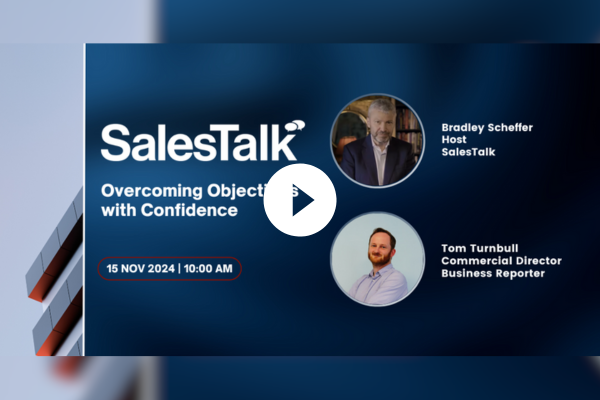Empowering Gen Z: a guide for HR leaders

So much has been written about Gen Z – and with good reason. They already outnumber Boomers in most organisations, with our Certified Top Employers having seen a three-percentage point increase in their Gen Z populations over the last year. And in the UK, they already make up about one in eight (12 per cent) of the workforce.
At Top Employers Institute, we conducted a large-scale survey of just under 1,700 people aged 18-27 globally, to learn about Gen Z in their own words. We then combined these insights with findings from our 2,366 Certified Top Employers. We wanted to find the future that those in Gen Z are defining for themselves – and whether businesses are ready to harness their potential.
Our findings are divided into five categories:
Steady steps, stronger success
Gen Z wants to build a secure foundation for sustainable growth, one thoughtful step at a time. Their attitude towards professional success has been fiercely debated. They are often painted as pleasure seekers who are emotionally detached from their work.
Our research found something very different. In describing the sort of employer they wanted to work for, respondents globally placed development opportunities, a safe and healthy workplace and a financially stable organisation as their top three priorities. In the UK, this top three is the same, although promoting diversity and inclusion ranks far higher, in fourth place (compared with ninth globally). And when asked what kind of organisation they were most likely to thrive in, a third (33 per cent) of UK Gen Z respondents wanted their working environment to be casual and flexible, when compared with the global average of 24 per cent.
Ethical AI
For Gen Z, ethical AI means ensuring technology developments remain focused on enhancing the human experience. Gen Z are often seen as “digital natives” because they grew up in a world in which digital technology, the internet and social media were pervasive and integral to everyday life. Our headline figures suggest that over three-quarters (77 per cent) believe AI will allow them to develop new skills while almost as many (72 per cent) felt they were equipped to take advantage.
Our survey also found big differences in the degree of confidence in AI. Respondents in the UK were particularly cautious about how AI would personally impact them, with half (50 per cent) expecting AI to have a positive impact on their career, well below the global figure (61 per cent). And less than three in five in the UK (58 per cent compared with 68 per cent globally) believed AI would make them more efficient in their job.
Your wellness, your way
Nowhere is Gen Z’s prioritisation clearer than in its attitude towards wellbeing. It’s important for this generation to personalise the wellness journey and prioritise what matters most to each employee. When we asked whether Gen Z would accept a lower salary if it meant a better work-life balance, 62 per cent globally said yes. While two-thirds (68 per cent) of them see work as one of the most important parts of their lives, there are big geographical differences in responses to this question, with fewer than 60 per cent of UK respondents and 50 per cent of Germans feeling the same way.
Leading with empathy
Until Gen Z is ready to take leadership roles, they are actively looking for the right leaders to follow. And this means following those leaders that listen, understand and inspire. Top of the list of what Gen Z looks for is leaders who motivate and inspire others (52 per cent) and show empathy and care (46 per cent). In the UK, these top two are reversed – and there are other areas of difference. UK Gen Z employees place a much greater emphasis on the way a leader handles workplace disagreements (33 per cent compared with 28 per cent globally), rather than leaders who can take risks wisely (25 per cent compared with 33 per cent globally).
Connect and thrive
For those in Gen Z, community and belonging are vital, based on positive relationships in collaborative workplaces. Our research shows that for three-quarters of UK Gen Z employees (76 per cent), the workplace is a place to build community, social connections and belonging, while almost as many (73 per cent) put it more simply – it’s important to have fun at work.
A collaborative and team-oriented working culture is the most preferred. If Gen Z employees feel they no longer fit in a working environment, however, they will adapt and move on without guilt. The certified Top Employers winning the war for Gen Z talent are those who can leverage their focus to meet this sense of community.
Final word
There’s no doubt Gen Z is bringing fresh and challenging perspectives into our workplaces. This generation is ambitious, well-balanced and authentic. Their standards will raise the bar, benefiting the whole workplace. And, as a result, we can look forward to a more dynamic, inclusive and empowered workplace.
Gen Z: Redefining the Future of Work is available for download now. Top Employers Institute is the No.1 global authority on HR strategies. With our world-leading certification and data-led insights, we guide and empower organisations in delivering transformational people practices, driving business outcomes and helping them attract, engage and retain top talent.
By Dr Emily Cook, Senior Researcher, Top Employers Institute

Business Reporter Team
Most Viewed
Winston House, 3rd Floor, Units 306-309, 2-4 Dollis Park, London, N3 1HF
23-29 Hendon Lane, London, N3 1RT
020 8349 4363
© 2024, Lyonsdown Limited. Business Reporter® is a registered trademark of Lyonsdown Ltd. VAT registration number: 830519543





